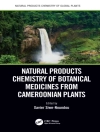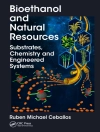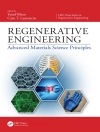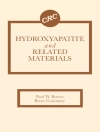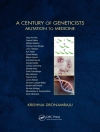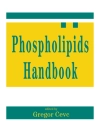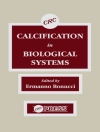Hot Topics in Infection and Immunity in Children IV contains chapters based on lectures given by speakers at the “Infection and Immunity in Children” course, held in June 2006 at Keble College, Oxford. It was the fourth annual course of this name and this is the fourth book in the series as well. Together the courses and books have become important components of the training available to paediatricians with an interest in this specialty and have become increasingly popular each year. This book covers topics in infectious diseases in children and is intended for Pediatric Infectious Disease trainees, trainers, and all those who manage children with infections.
Paediatric Infectious Diseases is now a recognised specialty in Europe with established training programmes and training centres, overseen by the European Society for Paediatric Infectious Diseases. This book and the course that precedes each edition will continue to play useful parts in the development and knowledge of specialists throughout the continent and beyond.
İçerik tablosu
Contents.- Contributing Authors.- The Enteroviruses: an Emerging Infectious Disease? The Real, the Speculative…and the Really Speculative.- Mark J. Abzug.- Introduction.- Enterivirus 71: a ‘New’ Neurologic Threat.- Modern Epidemiology and Clinical Presentations.- EV71 Brainstem Encephalitis.- EV71 Acute Flaccid Paralysis.- EV71 Diagnosis.- EV71 Pathogenesis.- EV71 History and the Emergence of Severe Epidemic Disease.- Therapy of EV71 Infection.- Congenital EV Infection.- Previous Evidence of In Utero EV Infection.- New Evidence for Congenital EV Infection: Amniotic Fluid Studies.- New Evidence for Congenital EV Infection: Placental Studies.- New Evidence of Congenital EV Infection: What Does it Mean?.- Chronic Fatigue Syndrome.- Evidence implicating EVs: the European Experience.- Evidence from Europe Not Implicating Evs.- New Evidence Implicating EVs: the American Experience.- Evidence Linking EV Infection and CFS: Possible Explanations.- Conclusions.- References.- Science and Society: The HIV Epidemic and South African Political Responses.- Hoosen M. Coovadia and Imraan Coovadia.- Introduction.- South Africa: The AIDS Advisory Committee.- Sarafina.- The Virodene Saga.- The Presidential AIDS Advisory Panel (Mbeki Panel, 2001).- The Durban Declaration.- The Enigma of President Mbeki.- Pragmatism.- Preoccupation with Governance.- The Politics of Negotiation.- AIDS and the Global Context.- Conclusion.- References.- Pathogenesis of Group A Streptococcal Infections and Their Sequelae.- Madeleine W. Cunningham.- Introduction.- Virulence Determinants and the Host Response.- Acute Rheumatic Fever.- 3.1 Immune Mechanisms in Rheumatic Carditis.- 3.1.1 Antibody Reacts with Valve Endothelium.- 3.1.2 T cell Infiltration through Valve Endothelium.- 3.1.3 Immune Mechanisms in Sydenham’s Chorea.- Post-Streptococcal Glomerulonephritis.- Acknowledgements.- References.- 4. Snakes, Jellyfish and Spiders.- Bart J. Currie.- Introduction.- Toxins andclinical relevance.- Snakebite.- Jellyfish stings.- Spider bites.- Conclusions.- Acknowledgements.- References.- Current Status of Group A Streptococcal Vaccine Development.- James B. Dale.- Introduction.- Burden of Disease Caused by GAS Infections.- Current Strategies for Vaccine Development.- Rationale for M Protein-Based GAS Vaccines.- Preclinical Evaluation of a 26-Valent M Protein-Based Vaccine.- Clinical Experience with the 26-Valent GAS Vaccine.- Development of Vaccines Designed to Prevent Rheumatic Fever.- Summary and Conclusions.- Acknowledgements.- References.- New Aspects on Diagnosis and Transmission of Hepatitis B in Paediatric Patients and Pregnant Women.- Robert A. de Man, Annemiek van der Eijck and Irene Veldhuijzen.- Horizontal transmission of hepatitis B and the paediatric patient.- Infectivity of body fluids.- Implications for the paediatric patient.- Chronic hepatitis B in pregnancy.- References.- Pertussis Immunisation in Adolescents and Adults.- Ulrich Heininger.- Introduction.- Epidemiology.- 2.1 Incidence of pertussis disease compared to B. pertussis.- infections in adolescents and adults.- 2.2 Adolescents and adults as the source for pertussis in infants.- Disease.- Diagnosis.-Treatment.- Prevention by Immunisation.- Successful Childhood Programmes.- Expanding Programmes Beyond Childhood.- Summary.- References.- 8. Trachoma: Revent Developments.- David Mabey.- Introduction.- Epidemiology.- Trachoma assessment.- Clinical signs and C. trachomatis infection.- Pathogenesis of Trachoma.- The SAFE strategy.- Surgery.- Antibiotic.- References.- 9. Gonococcal Infections in Newborns and in Adolescents.- Noni Mac Donald, Tim Mailman, Shalini Desai.- 1. Introduction.- 2. The Microbe.- 3. Gonococcal Infection in Newborns.- 4. Gonococcal Ophthalmia Neonatorum.- 5. Neonatal Gonococcal Scalp Abscess and Disseminated Gonococcal Infection.- 6. Diagnosis of Neonatal Gonococcal Infections.- 7. Treatment of Neonatal Gonococcal Infections.- 8. Prevention of Neonatal Gonococcal Infection.- 9. Gonococcal Infection in Adolescents.- 10. Why are Adolescents STI Rates so high?.- 11. Partners, Condom Use and Sexual Networks.- 12. Clinical Presentations of Gonococcal Infection in Adolescents.- 13. Diagnosis Testing for N gonorrhoea Infections in Adolescents.- 14. Treatment pf Adolescent Gonococcal Infections.- 15. Prevention of Gonococcal Infections in Adolescents.- 16. Summary.- References.- 10. Management of Severe Dengue in Children.- Christopher Moxon and Bridget Wills.- 1. Introduction.- 2. Clinical features of severe dengue infection in children.- 3. Pathogenesis.- 4. Management – theoretical considerations.- 5. Management – practical guidelines.- 5.1 Fluid resuscitation.- 5.2 Management of bleeding.- 6. Summary/Conclusion.- References.- 11. Human Papillomavirus Vaccines: Who should get them and why?.- Stephane Paulus and Simon Dobson.- 1. Introduction.- 2. HPV epidemiology.- 3. Cervical cancer epidemiology.- 4. Age of sexual debut.- 5. Education/school leaving.- 6. HPV vaccines: nature and characteristics of immunising agent.- 7. Vaccine Safety.- 8. HPV vaccine implementation.- References.- 12. Antimicrobial Resistance Among Enteric Pathogens.- Larry K. Pickering.- 1. Introduction.- 2. Advantages of antimicrobial therapy.- 3. Limitations and challenges of antimicrobial therapy.- 4. Reasons for mechanisms of resistance.- 5. Resistance patterns of enteric pathogens.- 5.1 Campylobacter jejuni/coli.- 5.2 Shigella species.- 5.3 Salmonella species.- 6. Effect of resistance on clinical manifestations and treatment options.- 7. Future directions.- References.- 13. What the paediatrician needs to know when pandemic influenza arrives in clinical practice.- Nicole Ritz and Nigel Curtis.- 1. Introduction.- 1.1 The media outbreak.- 2. The impact of pandemic influenza.- 2.1 How many people will be affected?.- 2.2 How fast will pandemic influenza spread?.- 2.3 Is human-to-human transmissionlikely to occur?.- 3. Diagnosis and clinical features of H5N1 avian influenza.- 3.1 Differences between pandemic influenza and seasonal influenza.- 3.2 Clinical features.- 3.2.1 Clinical features at presentation.- 3.2.2 Presentation with delayed respiratory features.- 3.2.3 Complications.- 3.3 Radiology.- 3.4 Laboratory features.- 3.4.1 Routine investigations.- 3.4.2 Laboratory confirmation.- 4. The treatment of H5N1 avian influenza.- 4.1 Adamantanes (M2 blockers).- 4.2 Neuraminidase inhibitors.- 4.2.1 Mechanism of action.- 4.2.2 Administration.- 4.2.3 Formulations.- 4.2.4 Effectiveness.- 4.2.5 Adverse effects.- 4.2.6 Dosing in children.- 4.3 Resistance to anti-influenza drugs.- 4.4 Prophylaxis.- 4.5 Who should be treated?.- 4.6 Additional and other treatments.- 4.7 Personal stockpiling of antiviral drugs.- 5. Limiting the spread of influenza during a pandemic.- 6. The prevention of pandemic influenza.- 7. Conclusion.- Acknowledgements.- References.- 14. Lyme Disease.- Eugene D. Shapiro.- 1. Introduction.- 1.1 Etiology and Epidemiology.- 2. Clinical Manifestations.- 3. Diagnosis.- 4. Treatment.- 5. ‘Chronic’ Lyme Disease.- 6. Congenital Lyme Disease.- 7. Prevention of Lime Disease.- 8. Lyme Hysteria.- 9. Summary.- References.- 15. Management of Myocarditis in Children: the current situation.- Brigitte Stiller.- 1. Introduction.- 2. Viral Myocarditis: three different phases.- 2.1 Phase 1: Viral Infection.- 2.2 Phase 2: Autoimmune Injury.- 2.2.1 T cells.- 2.2.2 Cytokines.- 2.3 Phase 3: Dilated Cardiomyopathy.- 3. Diagnosis and Treatment of the Different Phases: Current Recommendations.- Phase 1: Diagnosis and Treatment in Viral Replication.- Phase 2: Diagnosis and Treatment during Autoimmune Activation.- Phase 3: Diagnosis and Treatment during Dilative Cardiomyopathy.- 4. Clinicopathological Subtypes of Myocarditis.- 4.1 Fulminant myocarditis.- 4.2 Acute myocarditis.- 4.3 Chronic active myocarditis.- 4.4 Chronic persistent myocarditis.- 5. Therapeutic Strategies for Paediatric heart Failure and Haemodynamic Instability.- 6. Conclusions.- References.- 16. Therapy of Herpes Virus Infections in Children.- Richard J. Whitley.- 1. Introduction.- 2. Neonatal Herpes Simplex Virus Infection.- 3. Activiral Therapy of neonatal HSV Infection.- 3.1 Mortality.- 3.2 Morbidity.- 3.2.1 Disseminated and CNS Neonatal HSV Disease.- 3.2.2 Skin Eye and Mouth Disease.- 3.2.3 Summary.- 4. Herpes Simplex Encaphalitis.- 4.1 Treatment.- 5. Varicella Zoster Virus.- 5.1 Treatment of Varicella in the Immunocompetent Host.- 5.2 Treatment of Varicella in the Immunocompromise Host.- 5.3 Valacyclovir and Famciclovir.- 5.4 Resistant Varicella Zoster Virus Infections.- 6. Cytomegalovirus.- 6.1 Diagnosis.- 6.2 Treatment.- 7. Summary.- References



